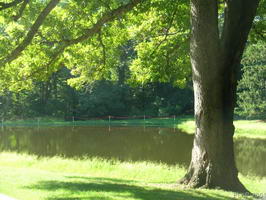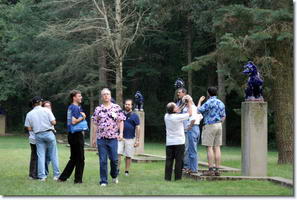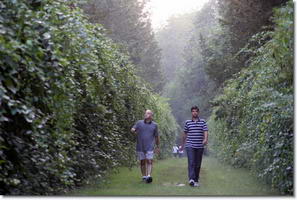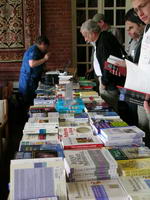Important Dates
Click to Expand- July 12
- Paper submissions due.
- July 25
- Shepherding begins
- August 30
- Second draft due for review
- September 4
- Notification of acceptance
- September 4
- Deadline focus group / workshop proposals
- September 10
- Registration Opens
- September 25
- Conference Versions Due
- October 12-16, 2020
- PLoP Conference Days
- February 9, 2021
- Proceeding version due
PLoP Participation
Pattern Languages of Programs (PLoP) conference is a premier event for pattern authors and pattern enthusiasts to gather, discuss, and learn more about patterns and software development. The conference program offers pattern authors a unique opportunity to have their pattern languages reviewed by fellow authors, which occurs mainly in the form of Writers' Workshops.
In a writers’ workshop, authors of papers and people who have reviewed those papers provide constructive criticism and suggestions for improvement using a light, but formal, process. PLoP also hosts workshops, focus groups, and invited talks.
PLoP Participant vs PLoP Observer
A PLoP attendee can be either a Participant or an Observer. The difference is what they may do in writers’ workshops.
PLoP Participant
A PLoP Participant is a person who actively participates in writers’ workshops at PLoP. PLoP Participants will have had access to the workshop papers ahead of time, and are expected to prepare by reading the papers before the conference. They are permitted to make suggestions, critique, and describe observations about papers. They participate for the full duration of PLoP.
PLoP Observer
A PLoP Observer is someone that wants to learn more about patterns and what happens at PLoPs. They will have an observer role in the writers’ workshops watching what happens but do not comment. They are silent observers of the writers’ workshops.
PLoP Participants and Observers participate fully in all the other aspects of PLoP.
Writers' Workshops
Writers' workshops are used by the pattern community to improve our patterns. These workshops are the primary focus of our time at PLoP and in them we discuss accepted papers.
The format of Writers' Workshops has been adopted from poetry review. Each writers' workshop contains 5 to 8 papers, which authors must read before the conference to be able to give each other feedback on their work in a peer review session of around one hour per paper. Richard Gabriel has written a book on writers workshops.
In each session, the authors of the paper under discussion remain silent while the others discuss it and explain additional insights and views they have about it. From these sessions, authors get a lot of feedback and suggestions from fellow authors and others about how they can improve their work.
Non-authors are free to choose any writers' workshop they want, but in order to participate they need to read the paper beforehand. Paper assignments to workshops will be posted well before the conference.
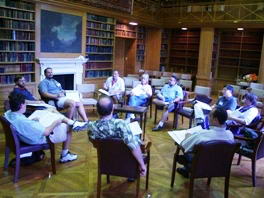
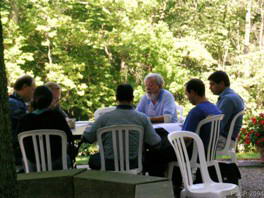
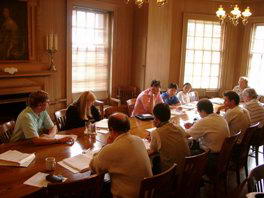
A fruitful participation in a Writers' Workshop session requires you to read the paper in advance and to take some notes on what you liked about the paper and what you think needs improvement. Since there's no reading time during the Writers' Workshops and experience shows that chatting with others or meeting people is much more fun than being alone reading papers, do yourself a favor and read the papers of your Writers' Workshop in advance.
A lot of the Writers' Workshop came from poetry and Richard Gabriel has an excellent book on the topic titled Writers' Workshops & the Work of Making Things. To know more about Writers' Workshops you can read an excellent introduction by Doug Schmidt. Jim Coplien has also written a pattern language for Writers' Workshops that offers insight into the reasons behind the process we use.
BootCamp
The session will provide an introduction to patterns — a training, mentoring, experiencing activity, where participants will be immersed in patterns and emerge with an enlarged perspective, their first pattern, and an ability to get more out of all PLoP conferences.
Games
Games are a well-established activity at PLoP. Some games have become 'traditions', while others will be surprises.
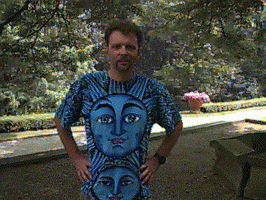
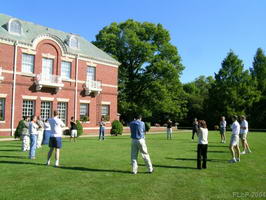

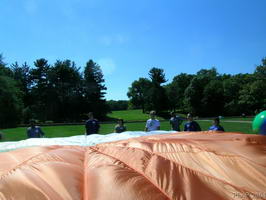
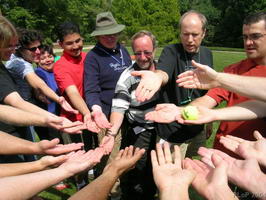
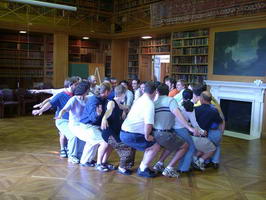
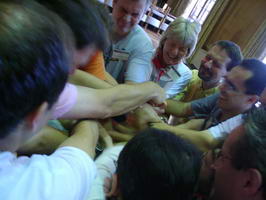
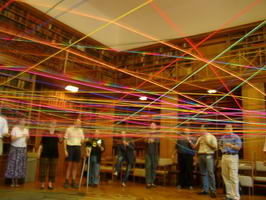
Games reflect one of the unique features of the PLoP™ series of conferences, which is the emphasis placed on non-technical activities that try to create an environment that let us know each other, activate the right halfs of our brains, and build up a community of trust.
Come with an open mind and prepare to engage in some fun time with your fellow PLoPers. Unforgetable!
Other activities
PLoP will be an exciting time for many pattern authors. We may encourage outside activites on an ad hoc basis. More information will be revealed at the conference or shortly beforehand. For more details about plop activities click here.
